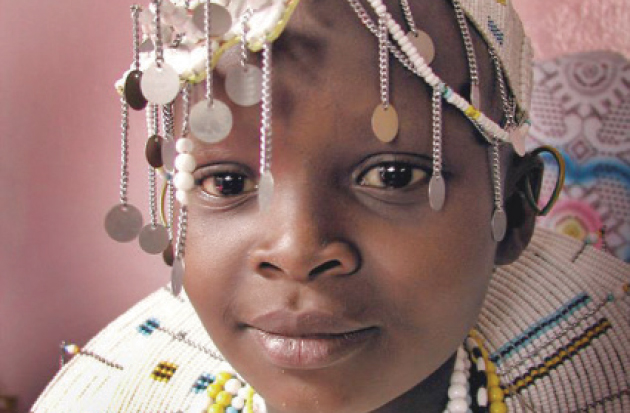18+: Strategy to end child marriages in Zimbabwe

Gender Vaidah Mashangwa
In November 2013, Dr Nkosazana Dhlamini-Zuma, Chairperson of the African Union Commission at an International Conference on Family Planning Addis Ababa pointed out that, “We must do away with child marriages. Girls who end up as brides at a tender age are coerced into having children while they are children themselves.” What is surprising though is the fact that most of these child marriages are arranged by parents.
Globally, Unicef highlighted that 41 percent of the women aged between 20 and 40 were entered into marriage while they were children. While this practice is rampant in countries of South Asia, countries with the highest rates marriages are in Africa, including Zimbabwe. According to Plan International, three out of every 10 girls in Zimbabwe are married before their 18th birthday.
Chid marriage deprives a child of his or her fundamental rights. Section 81 of the Zimbabwean constitution outlines children’s rights and one of the basic rights is that every boy or girl under the age of 18 has a right to family or parental care or to appropriate care when removed from the family environment. Section 81 (1e) further states that the children have a right to be protected from economic and sexual exploitation, child labour and maltreatment, neglect or any form of abuse, hence the need to protect the girl child from child marriage. In fact, child marriage means a life of sexual and economic servitude for the girl child.
In Zimbabwe, the highest child marriage prevalence rate, according to provinces is in Mashonaland Central with 50 percent, Mashonaland West 42 percent, Mashonaland East 36 percent, Midlands 31 percent, Manicaland 30 per cent, Matabeleland North 27 percent, Harare 19 percent, Matabeleland South 18 percent, and Bulawayo being the least affected province at 10 percent.
The most affected areas are the rural provinces due to the issue of poverty. The prevalence rate in Mashonaland Central ought to be investigated and immediate solutions drawn. Zimbabwe’s overall child marriage rate stands at 30 percent while the global rate is 29 percent this year.
This is an indication that Zimbabwe’s child marriage prevalence rate is still high, hence the need to make every effort as individuals, families, communities, the government, the regional and international community to put measures in place aimed at ending child marriage. The 18+ Ending Child Marriages in Southern Africa is one such programme developed by Plan International and the government through the Ministry of Women Affairs Gender and Community Development as part of I am A Girl Campaign to end child marriage.
The 18+ programme is unique in that it takes a multi- level approach encompassing many countries in the region. It emphasises the need to ensure that the girl child takes time to pursue education, achieves personal and professional growth while waiting to turn at least 18 years and beyond before getting married.
The programme is also designed to address the issue of child marriage by redefining the drivers of the problem. It also aims at influencing laws and policies pertaining to child marriage and related laws.
According to Plan International, investing in girls has the power to save lives and transform the future. This is a multi-sectorial approach, with Plan International working closely with the government, girls, communities and their leaders leaders, the private sector and the global institutions.
In June 2014, the African Union launched the first ever campaign to End Child Marriage. The two-year campaign focuses on accelerating change across the continent by encouraging AU member States to develop strategies to address child marriage.
The Campaign on Ending Child Marriage was launched in Zimbabwe on July, 31, 2015 at the HICC by the First Lady, Cde Grace Mugabe under the theme, “We are Girls, not Brides”. During the event, various ministries and other players reiterated their commitment to continue programming against child marriage.
Studies have revealed that poverty is one of the major factors underlying child marriage. Where there is acute poverty in a family, the members may find it easier to marry off the girl so that they get something to sustain themselves such as grain and cattle.
What must be borne in mind is that while child marriage is viewed as a way to escape poverty, it actually worsens the cycle of intergenerational poverty as the poverty is passed on from one generation to the other. One other cause of child marriage is weak laws and their inadequate implementation. In most countries, including Zimbabwe, there is no conviction in terms of breach of prohibitions against child marriage. There is need to punish the offenders.
There are also conflicting laws pertaining to child marriage. While the Constitution is clear about the marriageable age, the Marriage Act 5:11 says those children under the age of 16 should marry with the consent of a guardian or a judge of the High Court in the absence of a guardian.
On the other hand, Customary Marriage does not specify minimum age of marriage. There is need to harmonise these laws so that there is coherence.
According to Connexion Childline First Edition June 2015, often after a girl has been sexually abused, the perpetrator opts for an escape route of marrying the girl. At times the parents get carried away by the bride price offered not knowing that they are subjecting their daughter to a life of pain and misery.
Such marriages, too, do not last. According to Childline, the highest affected age group by such marriages is the 13 to 15 years group which has 61 percent followed by the 16 to 17 years with 24 percent.
Religious and cultural practices also perpetuate child marriages. There are some religious sects that claim that such marriages are arranged spiritually and therefore cannot be challenged. At times these girls are as young as 12 or 13 years old and are ordered to marry men as old as 70 years. There are also incidences where the girl children are forced into marriage to appease avenging spirits. There is need to guard against such harmful cultural practices.
According to a Matabeleland North Chiefs workshop held from 24 to 25 September organised by the Ministry of Women Affairs, Gender and Community Development and Plan International, other causes of child marriage especially in Binga, include long distances to school, lack of support for the girl’s education, child neglect, lack of stiff penalties for offenders and orphan hood.
The consequences of child marriages are quite numerous. According to the Unicef Digest, health problems linked to child marriage not only affect the pregnant mother and the foetus but continue after birth. Actually, infant mortality among children born of very young mothers is higher than that of older mothers. Labour or giving birth becomes a difficult task as it can be fatal at times because the pelvis has not fully developed. An early marriage also denies children of school going age their right to education. Education is important for personal development and prepares children for their participation in socio-political and economic spheres including participation in the labour force.
In relation to this, early marriage affects the socialisation process, in that the young girl cannot make friends outside the family circle and reduces her chance of developing her own identity. Also, early marriage exposes the girls to HIV/Aids and sexually transmitted diseases. A young woman has no power and confidence to demand safe sex.
Many of these girls who are married off early suffer from prolonged domestic violence including physical, sexual and psychological harm. Once the girl is married early, she finds herself in a home with many responsibilities and she becomes burdened with the multiple roles. Furthermore, the economic dependency on the husband places the girl in a precarious position leading to stress and trauma.
The issue of Child marriage should be treated as a matter of urgency by the government and all sectors so that precious lives are saved. There is hope that by 2020 child marriage will have ended. Together we can.
The writer, Vaidah Mashangwa is Bulawayo Provincial Development Officer, Ministry of Women Affairs, Gender and Community Development. She can be contacted on 0772111592 email [email protected]











Comments